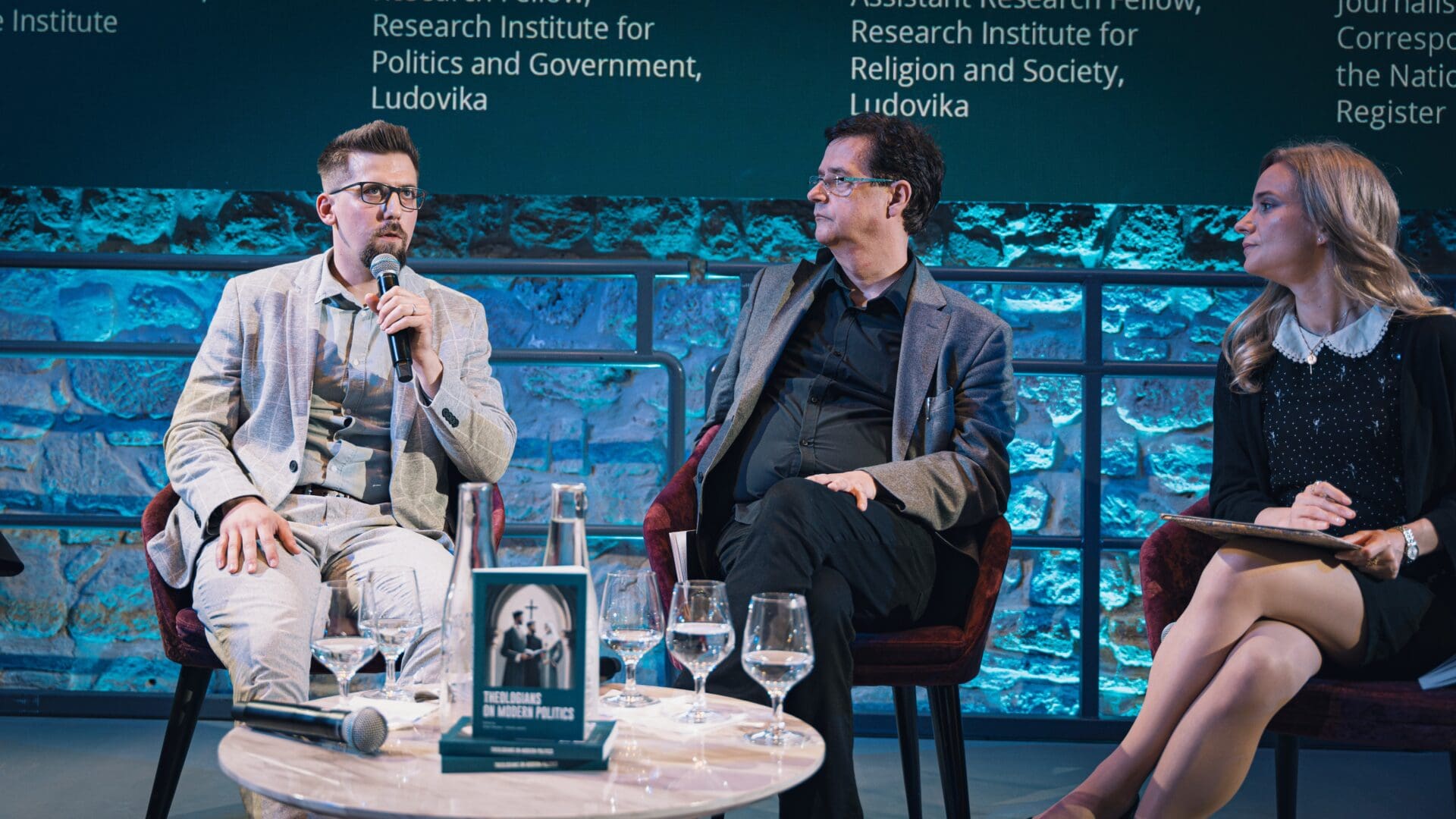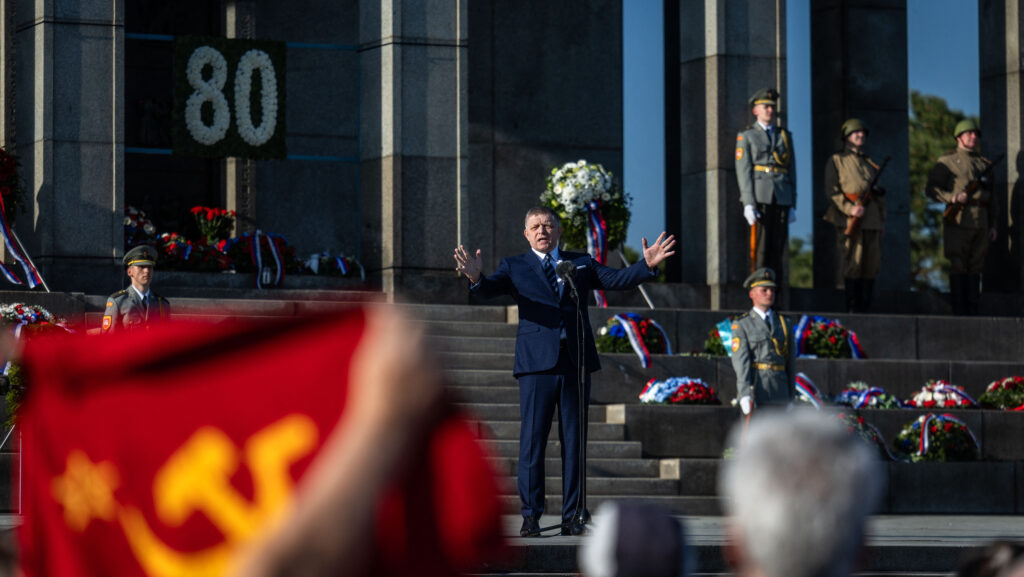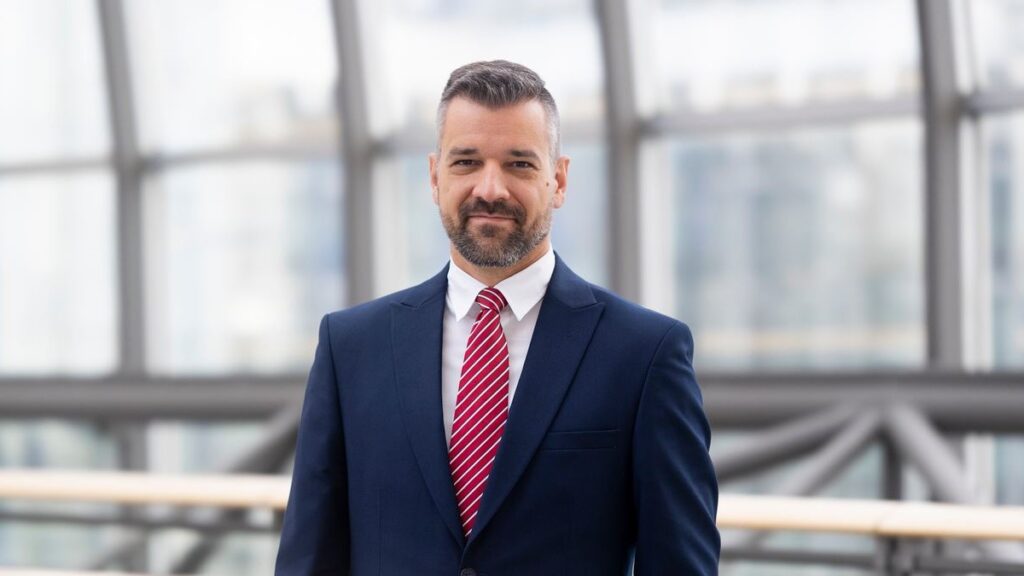On 4 June the Danube Institute hosted the launch of the volume Theologians on Modern Politics, co-authored and co-edited by Danube Institute senior researcher Dr Ádám Darabos and Dr András Jancsó, a research fellow at the Institute for Religion and Society at Ludovika University of Public Service. The event included a joint discussion with Dr Tamás Nyirkos, a distinguished scholar of religious studies and political philosopher. The conversation was moderated by Solène Tadié, a French journalist at the National Catholic Register.
The Lajos Batthyány Foundation and the Danube Institute have released an exciting book titled Theologians on Modern Politics. The volume features European Catholics, Dutch and American Protestants in three separate chapters, as well as Hungarian Catholic theologians and politicians, exploring the connection between theology and current political matters. Its goal is to serve as a bridge between Hungary and the Anglosphere, fostering dialogue and understanding about Christian political philosophy while exploring significant debates among theologians, such as the one on the metaphysical character of politics.
For example, Joseph Ratzinger was deeply critical of any theory that suggested the connection between the matters of the polis and the faith. At the same time, Protestants or even contemporary Catholics like Johann Baptist Metz thought about this question in a totally different way. Given the fact that the book is a collection of articles, it does not elaborate in detail on these authors, it is rather informative in nature. As the development of Christian democracy or Christian socialism was highly influenced by the thinkers mentioned in the book, it also gives a nuanced insight into the historical perspective of political developments in the Anglosphere or Europe. We can read in it, among others, about the diminishment of the Papal states in the second half of the 19th century, the two World Wars, or the intellectual debates in Hungary before and after the Trianon Treaty.
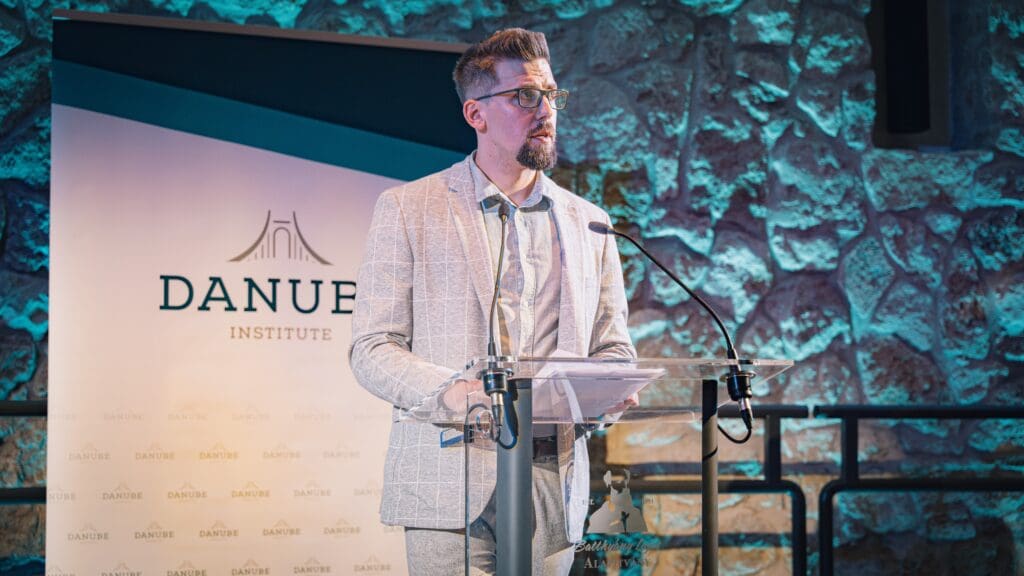
This virtue of the book also allows the reader to learn more about writers like Carl Schmitt, whose work has been influential over the last two centuries. The authors also highlight that the Vatican’s consistent pacifist standpoint in world politics and the encyclical Rerum Novanum written by Pope Leo XIII laid down the foundation of the European Union. These theological ideas have been largely absent from educational curricula, and the book aims to address this gap. We tend to forget that Christian socialism, Christian democracy, or even feminism were championed by Christian thinkers, and our peaceful and rather accepting societies wouldn’t be the same without them.
During the book launch at the Danube Institute, Ádám Darabos argued that under the Communist regime, the Hungarian public did not have the chance to get to know the important Protestant thinkers from the United States. Darabos highlighted that he draws inspiration from Christian realism, a theory developed by Reinhold Niebuhr and John Coleman Benett. This perspective emphasizes the need to consider both the positive and negative aspects of human nature. It cautions against relying solely on politics to solve complex problems, underscoring the importance of recognizing its limitations. Furthermore, Ádám Darabosadvocates for social engagement while being mindful of these limitations. Christian realism, he argues, provides fresh insights into political challenges. The researcher also cited a Hungarian example, Antal Schütz’s call to recognize the dual tendencies (good and bad) within Hungarian history and society, which aligns with this perspective, combating prevailing pessimism.
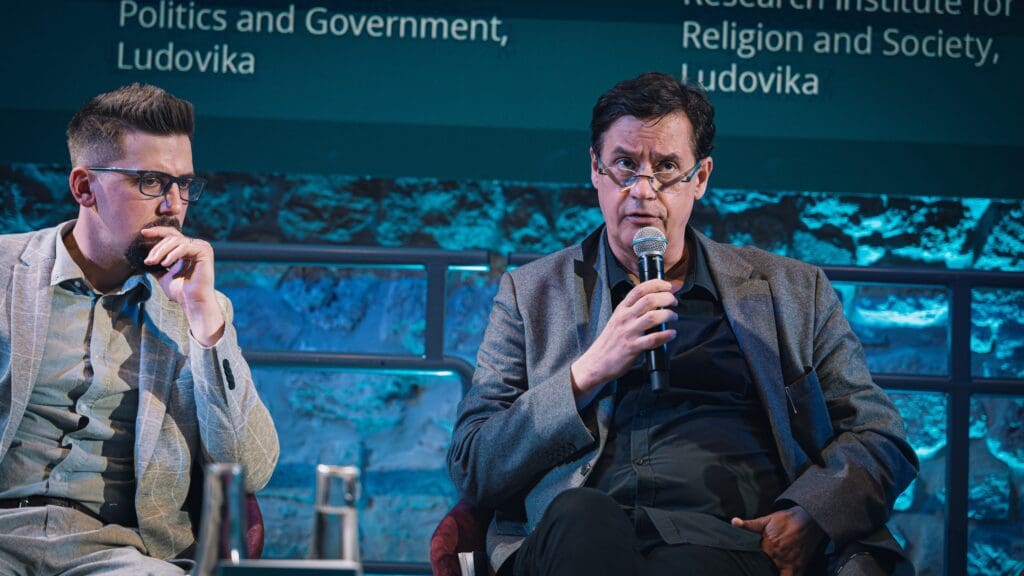
In his remarks Dr Tamás Nyirkos challenged the Weberian theory, which associates Protestantism with the rise of capitalism. He said recent research suggests that there is no real evidence that Protestant people, merely because of their faith, were more successful in trade, production or commerce than their Catholic counterparts. Furthermore, Nyirkos said that capitalism is not an amoral economic system, but more a set of values which gives moral obligations to communities and individuals alike. Misunderstanding it as a purely tactical system devoid of values overlooks its metaphysical implications and clear vision for the societal organization. It gives a clear image to people about the essence of good andbad, just and unjust, and has all the characteristics of a religion, like Christianity.
Regarding the absence of a Christian theory on social structure and economics, Tamás Nyirkos pointed out that in the Middle Ages, polyhistors possessed comprehensive knowledge across various fields, including economics, rhetoric, philosophy, theology, and mathematics. However, today’s specialization in fields like economics and AI or different branches of philosophy makes it challenging to address multiple aspects simultaneously within a single paper.
András Jancsó highlighted during the panel discussion the fact that while Catholicism claimed universality, its expression varied across different continents, in Europe, for example, where Catholicism held dominance for an extended period, and noted that deeper study was essential in this field. He pointed out that the models of clergy selection from the Middle Ages and Early Modern Ages continued to influence how secular states governed. Additionally, European political thought was shaped by Catholic thinkers, including concepts related to the European Union.
András Jancsó also defended Pope Pius XII, whom British historian John Cornwell called ‘Hitler’s Pope’ because he signed the Reichskonkordat in 1933 on behalf of the Vatican. Jancsó reminded of the pope’s anti-totalitarian stance and his assistance to Jews during the Hitlerite terror. Pope Pius XII was regarded as a hero in Hungary due to his support for Cardinal József Mindszenty, he noted. Another pope, Benedict XVI, that is, Joseph Ratzinger, has been described as both progressive and ultra-conservative. He explored the Böckenförde paradox, highlighting how liberal democracies relied on conditions they could not guarantee for themselves. Finally, the example of Margit Slachta, a Catholic nun and a feminist was highlighted. She was the first female member of the Hungarian National Assembly, exemplifying that the system was not inherently patriarchal. She fought for the rights of women during her political career while she also highlighted the differences between the two sexes.
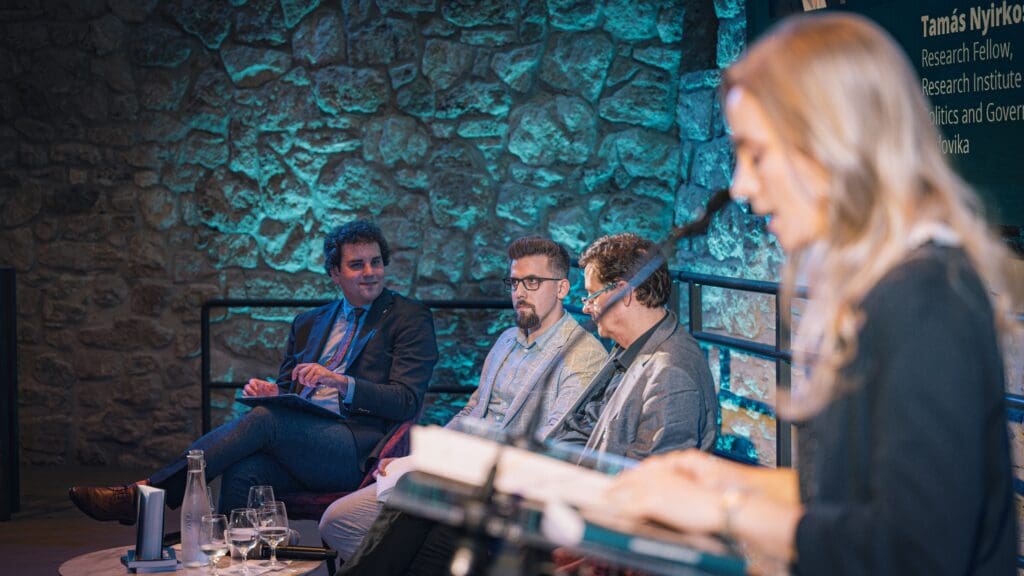
The French Revolution, the Napoleonic wars, the emergence of capitalism, and the development of the first nation-states put both Protestant and Catholic churches in a position they could never have dreamed of a few decades before. Even though reconciliation between state and church came fast, these events served as a Rubicon in Western history and civilization. The clergy, regardless of its faith, had to rediscover itself in a totally different political and socio-cultural environment. The insightful book attempts to demonstrate the changing nature of both religious institutions and the faith itself, which allowed Christian ideas and communities to remain key players in modern politics.

